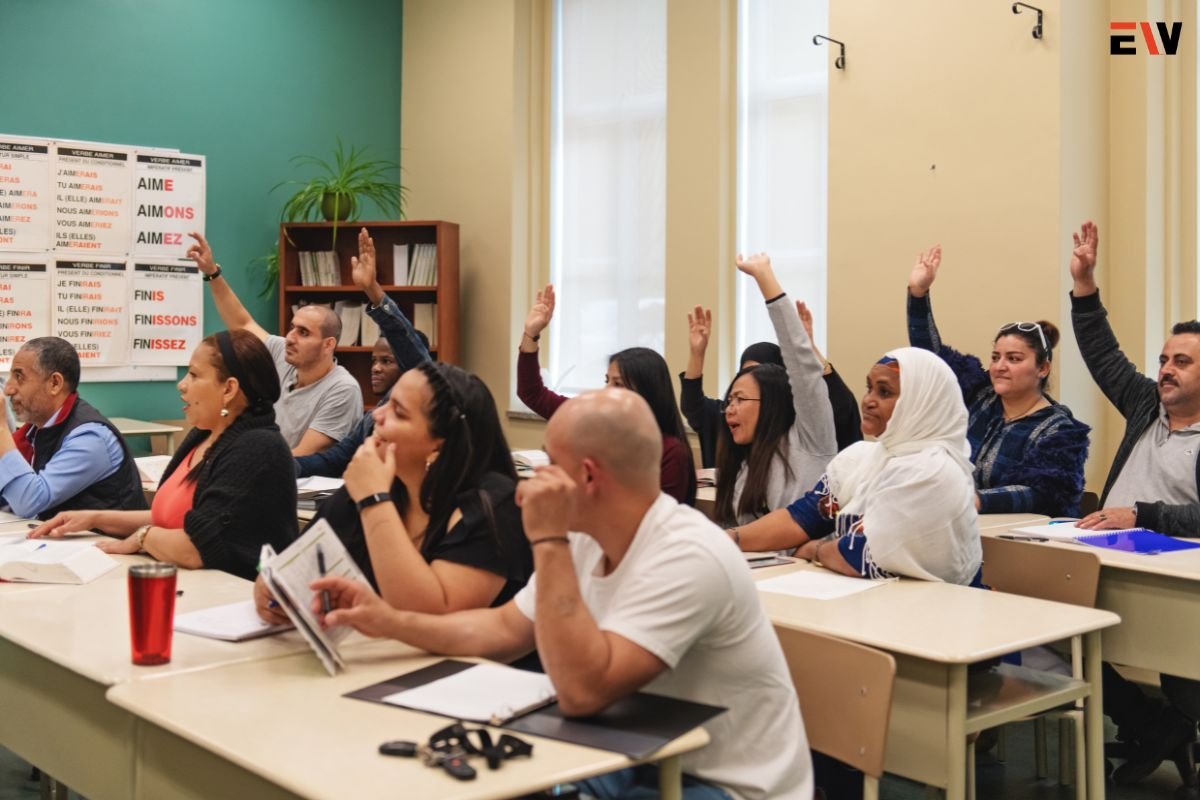Adult education courses provide opportunities for individuals to continue their education and personal development beyond traditional schooling years. These courses cater to a diverse population, including working professionals, retirees, and individuals seeking new skills or personal enrichment.
The importance of adult education lies in its ability to enhance career prospects, foster personal growth, and contribute to a more informed and skilled society. This article explores the various types of adult education courses, their benefits, and how to choose the right program.
Types of Adult Education Courses
1. Professional Development Courses
Professional development courses are designed to help individuals enhance their skills and knowledge in their current field or prepare for new career opportunities. These courses often focus on industry-specific skills, certifications, or continuing education credits required for maintaining professional licenses.
- Examples: Project management, digital marketing, human resources management, financial planning, and IT certifications.
2. Vocational and Technical Training
Vocational and technical training programs provide hands-on skills and training for specific trades or careers. These courses are ideal for individuals looking to enter or advance in technical fields without pursuing a traditional college degree.
- Examples: Carpentry, welding, plumbing, automotive repair, culinary arts, and medical coding.
3. Academic Courses

Academic courses offer adults the opportunity to pursue further education in traditional academic subjects. These courses can lead to degrees, diplomas, or certifications and are often offered by colleges and universities.
- Examples: Mathematics, literature, history, science, and foreign languages.
4. Personal Enrichment Courses
Personal enrichment courses focus on hobbies, interests, and personal development. These courses are often non-credit and are taken for enjoyment and self-improvement rather than professional advancement.
- Examples: Photography, painting, cooking, yoga, creative writing, and gardening.
5. Online Courses and MOOCs
Online courses and Massive Open Online Courses (MOOCs) have revolutionized adult education by making learning accessible from anywhere. These courses cover a wide range of subjects and are often offered for free or at a low cost.
- Examples: Coursera, edX, Udemy, and Khan Academy.
6. Adult Basic Education (ABE) and GED Preparation
Adult Basic Education (ABE) courses are designed for adults who need to improve their literacy, numeracy, and basic academic skills. GED preparation courses help individuals prepare for the General Educational Development (GED) test, which is equivalent to a high school diploma.
- Examples: Reading and writing skills, math fundamentals, science, social studies, and GED test prep.
7. English as a Second Language (ESL) Courses
ESL courses are tailored for non-native English speakers who want to improve their English language skills for personal, academic, or professional purposes. These courses focus on speaking, listening, reading, and writing in English.
- Examples: Conversational English, business English, academic English, and TOEFL preparation.
Benefits of Adult Education Courses

1. Career Advancement
One of the primary benefits of adult education courses is career advancement. By acquiring new skills or certifications, individuals can improve their job prospects, qualify for promotions, and increase their earning potential.
2. Personal Growth and Fulfillment
Adult education fosters personal growth and fulfillment by allowing individuals to explore new interests, develop hobbies, and gain a sense of accomplishment. Learning new skills can boost self-confidence and enhance overall well-being.
3. Adaptability and Lifelong Learning
In today’s rapidly changing job market, adaptability is crucial. Adult education courses help individuals stay current with industry trends, technological advancements, and new methodologies, promoting a culture of lifelong learning.
4. Networking Opportunities
Adult education courses often bring together individuals from diverse backgrounds, providing valuable networking opportunities. Building connections with peers, instructors, and industry professionals can lead to new career opportunities and collaborations.
5. Improved Quality of Life
Education is linked to improved quality of life, including better health, increased civic engagement, and greater social mobility. Adult education courses empower individuals to make informed decisions and contribute positively to their communities.
Choosing the Right Adult Education Course

1. Assess Your Goals
Determine your goals for pursuing adult education. Are you looking to advance in your current career, switch professions, or pursue a personal interest? Understanding your objectives will help you choose the right course.
2. Research Programs
Research various programs and institutions that offer the courses you are interested in. Look for accredited institutions with a good reputation and positive reviews from former students.
3. Consider Flexibility
Many adults have busy schedules with work, family, and other commitments. Look for courses that offer flexible learning options, such as evening classes, weekend sessions, or online courses.
4. Evaluate Costs
Consider the cost of the course, including tuition, materials, and any additional fees. Some programs may offer financial aid, scholarships, or payment plans to help manage costs.
5. Check Prerequisites
Ensure you meet any prerequisites for the course you wish to take. Some advanced courses may require prior knowledge or experience in the subject area.
6. Seek Support Services
Look for programs that offer support services such as academic advising, tutoring, career counseling, and technical support. These services can enhance your learning experience and help you succeed.
7. Read Course Descriptions
Carefully read course descriptions to understand the curriculum, learning outcomes, and methods of instruction. Make sure the course content aligns with your goals and interests.
Conclusion
Adult education courses play a vital role in empowering individuals to continue their learning journey, achieve their personal and professional goals, and contribute to a more educated and skilled society. Whether you are seeking career advancement, personal enrichment, or new skills, there are numerous opportunities available to meet your needs. By carefully choosing the right course and committing to lifelong learning, you can unlock new possibilities and enhance your quality of life.










